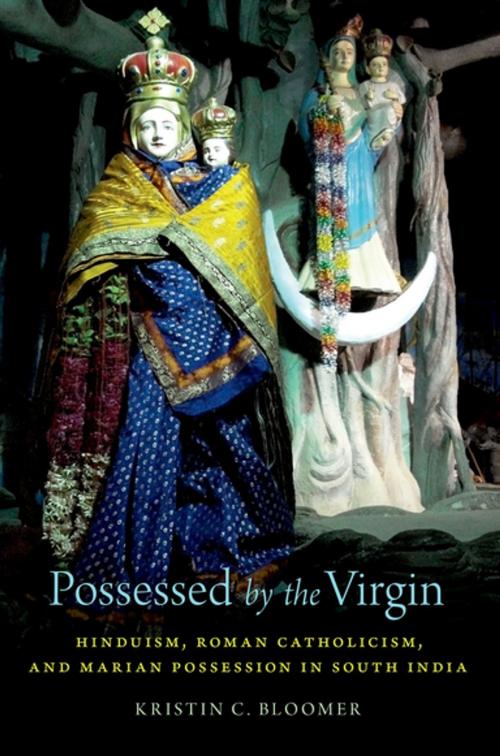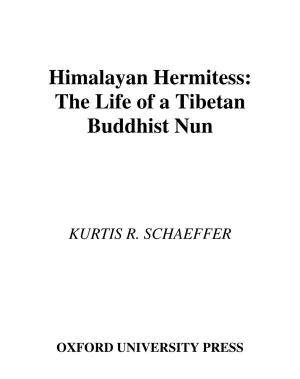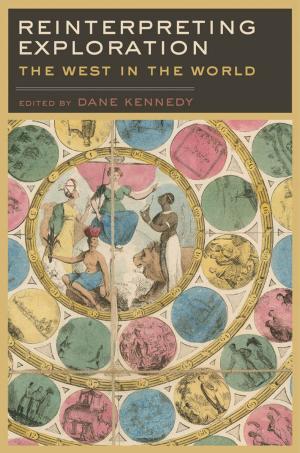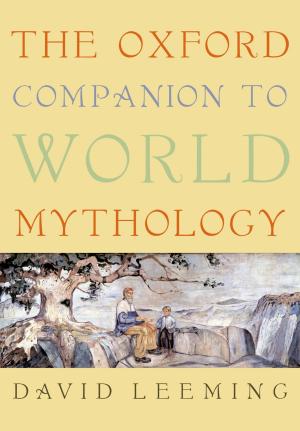Possessed by the Virgin
Hinduism, Roman Catholicism, and Marian Possession in South India
Nonfiction, Religion & Spirituality, Christianity, Denominations, Catholic, Catholicism, Social & Cultural Studies, Social Science, Anthropology| Author: | Kristin C. Bloomer | ISBN: | 9780190615116 |
| Publisher: | Oxford University Press | Publication: | November 10, 2017 |
| Imprint: | Oxford University Press | Language: | English |
| Author: | Kristin C. Bloomer |
| ISBN: | 9780190615116 |
| Publisher: | Oxford University Press |
| Publication: | November 10, 2017 |
| Imprint: | Oxford University Press |
| Language: | English |
In the early 1980s, in a rural village in South India, a Dalit woman miscarried. She hovered on the edge of death--until the Virgin Mary led her to a chapel and possessed her. For years, hundreds of ailing Catholics and Hindus came to this woman for healing, and Mary made them well. Two decades later, in the metropolis of Chennai, a boy named Alex lay in his hospital bed sick with fever when the Virgin Mary appeared to him and told him to walk. He did--and at home, he felt Mary enter his body. Soon, his older cousin Rosalind also showed signs of Marian possession. Mary told them that her name was "Jecintho." Within three years, another young woman in Chennai also became possessed by Jecintho and began exhibiting signs of stigmata: blood flowing from her hands and eyes. Possessed by the Virgin is an ethnographic account of Marian possession, healing, and exorcism among Catholics and Hindus in southeast India. Following the lives of three Tamil Roman Catholic women for more than a decade, Kristin C. Boomer attends to the women's own descriptions of their experience with Marian possession, as well as to those of the people who came to them for healing. Her book investigates how possession is possible and in what contexts such experiences can be read as authentic. Roman Catholic officials have responded in various ways: banning certain activities while promoting others. Their responses reflect the complicated relationship of the Roman Catholic Church with non-Christian religious practices on the Indian subcontinent, where "possession" (a term introduced by missionaries) involving deities and spirits has long been commonplace and where gods, goddesses and spirits have long inhabited people. This ground sets the stage for Bloomer to explore questions of agency, gender, subjectivity, and power, and the complex interconnection between the ethnographic "Self" and the "Other."
In the early 1980s, in a rural village in South India, a Dalit woman miscarried. She hovered on the edge of death--until the Virgin Mary led her to a chapel and possessed her. For years, hundreds of ailing Catholics and Hindus came to this woman for healing, and Mary made them well. Two decades later, in the metropolis of Chennai, a boy named Alex lay in his hospital bed sick with fever when the Virgin Mary appeared to him and told him to walk. He did--and at home, he felt Mary enter his body. Soon, his older cousin Rosalind also showed signs of Marian possession. Mary told them that her name was "Jecintho." Within three years, another young woman in Chennai also became possessed by Jecintho and began exhibiting signs of stigmata: blood flowing from her hands and eyes. Possessed by the Virgin is an ethnographic account of Marian possession, healing, and exorcism among Catholics and Hindus in southeast India. Following the lives of three Tamil Roman Catholic women for more than a decade, Kristin C. Boomer attends to the women's own descriptions of their experience with Marian possession, as well as to those of the people who came to them for healing. Her book investigates how possession is possible and in what contexts such experiences can be read as authentic. Roman Catholic officials have responded in various ways: banning certain activities while promoting others. Their responses reflect the complicated relationship of the Roman Catholic Church with non-Christian religious practices on the Indian subcontinent, where "possession" (a term introduced by missionaries) involving deities and spirits has long been commonplace and where gods, goddesses and spirits have long inhabited people. This ground sets the stage for Bloomer to explore questions of agency, gender, subjectivity, and power, and the complex interconnection between the ethnographic "Self" and the "Other."















